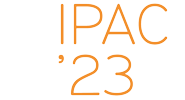Speaker
Description
The recent layout of the Jülich High Brilliance Neutron Source (HBS) driver linac is based on short crossbar H-mode (CH) cavities operated at a fixed synchronous phase. In the last decades the computing power for the development of linacs, available to physicists and engineers, has been increased drastically. This also enabled the accelerator community to finally carry out the required R&D to generate further the idea of drift tube linacs with alternating phase focusing (APF) beam dynamics, originally proposed in the 1950s. This focusing method uses the electric fields in between the drift tubes (i.e., gaps) to provide subsequent transverse and longitudinal focusing to the beam along multiple gaps. The beam focusing properties within each gap are adjusted individually by means of the synchronous phase. As a result of the alternating phase focusing method, these linacs can operate completely without internal magnetic lenses. The R&D-program for the high brilliance neutron source HBS offered the opportunity to investigate the APF concept further in order to open this advanced concept for high duty-factor, high intensity hadron beam acceleration. Besides, a prototype APF-interdigital H-mode (IH)-cavity has been designed and is going to be build and tested in the next future.
Funding Agency
This work is supported by the HBS Innovation Pool Project of the Research Field Matter of the Helmholtz Association.
| I have read and accept the Privacy Policy Statement | Yes |
|---|

